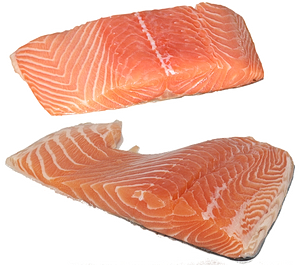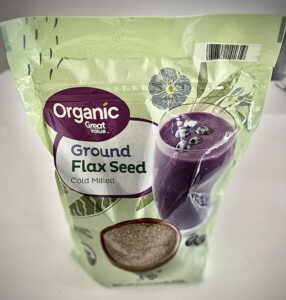
Overview
How many of us have heard our parents say “Eat your fish! It is brain food!”? Well, even if you were a spiteful kid and didn’t listen, take note – they are right!
Omega 3 fatty acids are polyunsaturated fatty acids – a covalent bond that contains four electrons in the outer shell of the atom). They are found in sunflower, and flaxseed oils, as well as fish and walnuts, which are essential nutrients that play a vital role in the functioning of the human body, especially the brain, but your body cannot make these fatty acids. To nourish your body with these important ingredients, you need to eat the proper foods that contain them.
This guide will provide you with all the information you need to know about Omega 3 fatty acids, including their benefits, sources, recommended daily intake, and more. You will learn why they are essential for optimal health and how to incorporate them into your diet.
With this information, you can make sure you are getting the most out of these nutrients and living a healthier life. Let’s get started!
Starting at the Beginning – What are Omega-3 Fatty Acids?

As mentioned, these are a type of polyunsaturated fatty acids (PUFAs) found in certain plants and marine animals.
They are considered essential nutrients for humans because the body is unable to produce most of them and consequently, we must get them from the food we eat.
There are three types of Omega 3 fatty acids:
- Alpha-linolenic acid (ALA): ALA is found in plants, and is the only type of Omega 3 fatty acid that the human body can produce. However, the human body can only convert a very small percentage of ALA into EPA and DHA.
- Eicosapentaenoic acid (EPA): Found in fish and fish oils
- Docosahexaenoic acid (DHA): Also found in fish and is an important nutrient for normal brain function in adults. Additionally and even more essential, DHA plays a significant role in the development of the brain of infants. Experts have repeatedly stated that consumption of DHA in your diet will improve your learning ability, and lack of it has been related to a deficiency in learning.
Plant sources are mostly ALA (Alpha-lipoic acid) – A naturally occurring compound, but very little is converted into EPA (Eicosapentaenoic acid) and DHA (Docosahexaenoic acid). Therefore, it is important to consume more ALA foods that convert into EPA and DHA.
Benefits
Omega 3 fatty acids are an essential part of the function of the cell receptors. They have been shown to help prevent heart disease and stroke and may help control lupus, eczema, and rheumatoid arthritis,
Besides improved brain health, these healthy fats have additional benefits that include improved heart health, possible reduced cancer risks, and other conditions such as mood and reduced inflammation. Let’s take a look at each of these benefits in more detail.
- Improved heart health: Helps to reduce triglycerides, blood pressure, and cholesterol levels. These three factors are important for heart health and reduce the risk of heart disease.
- Improved mood: Helps to reduce the risk of depression and promote feelings of happiness, and as mentioned, they help to promote brain health and may assist in improving symptoms of attention-deficit hyperactivity disorder (ADHD).
- Reduces risk of dementia: Helps to reduce the risk of developing conditions like Alzheimer’s and dementia. They also help to improve symptoms associated with depression, ADHD, and anxiety.
- Reduced inflammation: Omega 3 fatty acids help reduce inflammation throughout the body, which can lead to reduced risk of diseases like arthritis.
- Other benefits: Helps to reduce blood sugar and blood pressure, improves skin health, and promotes weight loss.
Sources

Flaxseeds, chia seeds, walnuts, fish, marine algae, and fish are some of the main sources of omega-3 fatty acids.
Let’s take a look at the different sources of omega-3 fatty acids and their benefits.
- Flaxseeds: Flaxseeds are a great source of ALA, which can be converted into EPA and DHA. The seeds are also rich in fiber and have a nutty taste and texture. They can be added to salads, baked goods, or other dishes.
- Chia seeds: This is a great source of ALA and fiber. They can be mixed into yogurt or added to salads.
- Walnuts: Walnuts are a great source of ALA and also provide some protein and healthy fats. They can be added to salads or eaten as a snack.
- Fish: Fish is the best source of EPA and DHA and can be eaten regularly. Fish is also a great source of protein as well.
- Marine algae: Marine algae is a good source of EPA and DHA, but it is much less common than fish. It can be consumed as a powder or in capsules. Marine algae are also rich in other minerals.
Best Fish for Omega 3

Researchers have said that the following are your best sources of omega-3 fatty acids:
- Salmon
- light tuna
- Sardines
- Cod
- Atlantic mackerel
- Herring
- Trout
Recommended Daily Intake
The recommended daily intake (RDI) of Omega 3 fatty acids varies between different age groups. The RDI of Omega 3 fatty acids for infants is 0.5 grams, while it is 1.5 grams for adults.
The RDI increases with age, which is important to remember. It is also important to note that these RDIs are based on ALA, not EPA or DHA. Although the RDIs are based on ALA, it is important to get enough EPA and DHA in the diet to promote health.
Let’s take a look at how much Omega 3 fatty acids each age group should consume.
- Infants: 0.5 grams
- Babies are not able to consume fish, which is the best source of EPA and DHA. Breast milk contains some Omega-3 fatty acids, but it is important to supplement with additional Omega-3 fatty acids. Talk to your doctor about the best infant formula and infant formulas with added Omega 3. – Children: 1.5 grams
- Children are growing and their brains are developing. It is important to ensure that children consume enough Omega 3 fatty acids to promote proper brain health. Fish is the best source of EPA and DHA and can be eaten regularly.
- Teenagers and adults: 5 grams – As we get older, we are less able to convert ALA into EPA and DHA. It is important to get enough EPA and DHA in the diet, especially as we age. It is also important to eat a healthy and balanced diet during this time to ensure that the body gets everything it needs.
- Pregnant and breastfeeding women: 6 grams – It is important to get enough Omega 3 fatty acids when pregnant and breastfeeding to ensure proper brain development in the baby. Fish is the best source of EPA and DHA and should be eaten regularly.
How to Incorporate Omega 3 Fatty Acids Into Your Diet
It can’t be emphasized enough that the best way to get these fatty acids is to eat more fish and marine algae.
- Eat more fish – Fish is the best source of EPA and DHA and can be eaten regularly. You can also eat other marine animals like shellfish, but it is best to limit these.
- Eat more plant-based sources – Flaxseeds, chia seeds, and walnuts are great sources of ALA. You can add them to salads, baked goods, or add them to yogurt. – Eat more marine algae
- Marine algae is the best source of EPA and DHA. It can be consumed as a powder or in capsules.
- Take fish oil supplements. Fish oil supplements can be taken regularly to get the recommended daily intake of Omega 3 fatty acids.
Potential Risks
The main risk is consuming too much fish and not getting enough nutrients from other food sources. It is important to get nutrients from other foods to avoid an imbalance in the diet. Another potential risk is consuming too many marine algae and not consuming enough other nutrients.
All in all, consuming too much Omega 3 fatty acids is not likely to cause any serious side effects. It is important to consume the recommended daily intake to get the benefits associated with them. Besides, marine algae are rich in minerals and vitamins, so it is unlikely to cause any side effects. Fish oil supplements, on the other hand, are not as rich in nutrients, so it is important to get enough nutrients from other sources to avoid an imbalance in the diet.
Supplements
If you are having trouble incorporating enough Omega 3 fatty acids into your diet, supplements can be a great option.
